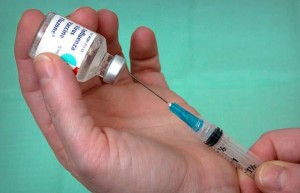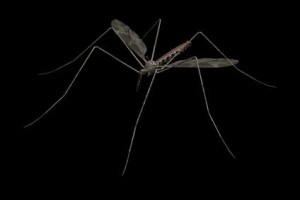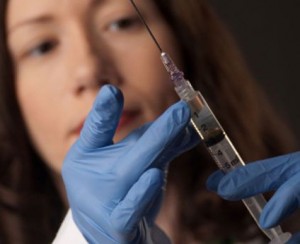Costa Rica News – All travelers should visit either their personal physician or a travel health clinic 4-8 weeks before departure for Costa Rica. The Costa Rican Times has been advised that you should take precautions especially for Malaria when traveling in areas known to have malaria cases.
 However it is travelers’ diarrhea is the most common travel-related ailment. The cornerstone of prevention is food and water precautions, as outlined below. All travelers should bring along an antibiotic and an antidiarrheal drug to be started promptly if significant diarrhea occurs, defined as three or more loose stools in an 8-hour period or five or more loose stools in a 24-hour period, especially if associated with nausea, vomiting, cramps, fever or blood in the stool. A quinolone antibiotic is usually prescribed: either ciprofloxacin (Cipro)(PDF) 500 mg twice daily or levofloxacin (Levaquin) (PDF) 500 mg once daily for a total of three days.
However it is travelers’ diarrhea is the most common travel-related ailment. The cornerstone of prevention is food and water precautions, as outlined below. All travelers should bring along an antibiotic and an antidiarrheal drug to be started promptly if significant diarrhea occurs, defined as three or more loose stools in an 8-hour period or five or more loose stools in a 24-hour period, especially if associated with nausea, vomiting, cramps, fever or blood in the stool. A quinolone antibiotic is usually prescribed: either ciprofloxacin (Cipro)(PDF) 500 mg twice daily or levofloxacin (Levaquin) (PDF) 500 mg once daily for a total of three days.
Quinolones are generally well-tolerated, but occasionally cause sun sensitivity and should not be given to children, pregnant women, or anyone with a history of quinolone allergy. Alternative regimens include a three day course of rifaximin (Xifaxan) 200 mg three times daily or azithromycin (Zithromax) 500 mg once daily. Rifaximin should not be used by those with fever or bloody stools and is not approved for pregnant women or those under age 12. Azithromycin should be avoided in those allergic to erythromycin or related antibiotics. An antidiarrheal drug such as loperamide (Imodium) or diphenoxylate (Lomotil) should be taken as needed to slow the frequency of stools, but not enough to stop the bowel movements completely. Diphenoxylate (Lomotil) and loperamide (Imodium) should not be given to children under age two.
Most cases of travelers’ diarrhea are mild and do not require either antibiotics or antidiarrheal drugs. Adequate fluid intake is essential.
If diarrhea is severe or bloody, or if fever occurs with shaking chills, or if abdominal pain becomes marked, or if diarrhea persists for more than 72 hours, medical attention should be sought.
Though effective, antibiotics are not recommended prophylactically (i.e. to prevent diarrhea before it occurs) because of the risk of adverse effects, though this approach may be warranted in special situations, such as immunocompromised travelers.
Malaria in Costa Rica: prophylaxis is recommended for Limon province, but not Limon City. The risk is greatest in the cantons of Matina and Talamanca.
For many years, the drug of choice has been chloroquine, which is inexpensive and generally well-tolerated. The recommended dosage is 500 mg weekly, starting one-to-two weeks before arrival and continuing through the trip and for four weeks after departure. Chloroquine may cause mild adverse reactions, including gastrointestinal disturbance, headache, dizziness, blurred vision, and itching, but severe reactions are uncommon. Other choices include mefloquine (Lariam), atovaquone/proguanil (Malarone)(PDF), doxycycline, and primaquine.
Mefloquine is taken once weekly in a dosage of 250 mg, starting one-to-two weeks before arrival and continuing through the trip and for four weeks after departure. Mefloquine may cause mild neuropsychiatric symptoms, including nausea, vomiting, dizziness, insomnia, and nightmares. Rarely, severe reactions occur, including depression, anxiety, psychosis, hallucinations, and seizures. Mefloquine should not be given to anyone with a history of seizures, psychiatric illness, cardiac conduction disorders, or allergy to quinine or quinidine.
Atovaquone/proguanil (Malarone) is a combination pill taken once daily with food starting two days before arrival and continuing through the trip and for seven days after departure. Side-effects, which are typically mild, may include abdominal pain, nausea, vomiting, headache, diarrhea, or dizziness. Serious adverse reactions are rare. Doxycycline is effective, but may cause an exaggerated sunburn reaction, which limits its usefulness in the tropics. Primaquine may cause hemolytic anemia in those with G6PD deficiency, so a blood test documenting normal G6PD levels must be obtained before starting primaquine. In those with normal G6PD levels, the main side-effect of primaquine is gastrointestinal disturbance, which can be minimized by taking the medication with food. Insect protection measures are essential, as below.
For other parts of the country, where malaria is rare, insect protection measures are advised, but malaria medications are not recommended.
Recommended medications for specific possible illnesses you can catch in costa Rica are:
Malaria: Prophylaxis with chloroquine, Lariam (mefloquine), Malarone (atovaquone/proguanil), doxycyline, or primaquine is recommended for Limon province, but not Limon City.
Recommended Vaccinations include:
Hepatitis A
Recommended for all travelers
Typhoid
Recommended for all travelers
Hepatitis B
Recommended for all travelers
Yellow fever
Required for travelers arriving from a yellow-fever-infected country in Africa or the Americas (with the exception of Argentina, Panama, and Trinidad and Tobago) and for travelers who have been in transit more than 12 hours in an airport located in a country with risk of yellow fever transmission. Not recommended otherwise.
Measles, mumps, rubella (MMR)
Two doses recommended for all travelers born after 1956, if not previously given
Tetanus-diphtheria
Revaccination recommended every 10 years
Your professional doctor should know more.


1 comment
the information “Quinolones are generally well-tolerated, but occasionally cause sun sensitivity and should not be given to children, pregnant women, or anyone with a history of quinolone allergy” is dangerous because there are siginificant gaps in all material respects. Side effects of Quinolones like Levaquin can be tendon damages, also tendon ruptures. Such Quinolones also shall not be given to people older than 60 years. Levaquin is black-box-labelled by the Federal Drug Administration – FDA. See also http://www.levofloxacin.eu#Offizielles. In Germany for Tavanic (Levofloxacin) a “Red Hand Letter” (equal to Black Box Warning, but separate edition) is existing.
Tilman Kluge
Gartenstrasse 4A
65812 Bad Soden
Germany